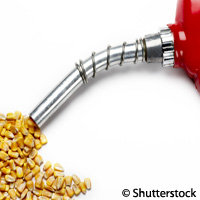Industry by-products for cleaner transport fuels
Europeans are environmentalists, developing and implementing cleaner solutions for our planet. For their part, researchers in Finland are using waste and other industrial products to give transport a boost with fresh and innovative fuels. In the spotlight is the processing of biobutanol and biogas for transport fuels. Experts say biobutanol can be generated from by-products of both the food and the pulp and paper industries. The results are in... and they are good. As part of the Sustainable Energy (SusEn) research programme at the Academy of Finland, researchers say biobutanol and biogas are suitable candidates to replace petrol as a fuel. The researchers point out that another candidate with the potential to replace petrol is methane derived from biogas. 'Butanol is a very energy-efficient alternative and, like ethanol, lends itself well for industrial-scale production,' explains Professor Ulla Lassi of the University of Oulu in Finland, who has been assessing how biobutanol can be used as a fuel for transport. According to the experts, butanol production is a microbiological process where raw material is converted into sugars. Microbes are used to process the sugars even further. The end result is carbon compounds that have been converted into butanol. Because butanol contains more carbon than ethanol, butanol is more energy efficient. Professor Lassi and her team also investigated butanol production through chemical synthesis, which uses innovative catalyst materials to convert compounds including glycerol, methanol or ethanol into alcohols such as butanol, pentanol and alcohol mixes. The experts have identified their suitability to be liquid fuels. 'Using glycerol in fuel production could be quite cost-efficient,' says Professor Lassi, 'as it is a by-product of biodiesel.' It should be noted, however, that there are several challenges in the microbiological production of butanol, including the digestion of the raw material to fermentable sugars, the multi-stage fermentation and how the high solvent contents play slows down the fermentation process. If the latter is combined with instability in solvent production, a decrease in microbial activity could result. 'Recent breakthroughs in butanol fermentation techniques have partly solved these problems,' Professor Lassi says. 'However, if we want to produce new liquid fuels, we need completely new chemical synthesis routes and catalyst development.' Experts from Åbo Akademi University contributed to this study. Under the SusEn programme, another study investigated the use of biogas as a transport fuel. In collaboration with Chilean peers, Finnish researchers assessed the upgrading of landfill gas into fuel. 'In recent years, interest in using biogas technology in the utilisation of industrial by-products for energy purposes has increased considerably,' says project leader Professor Jukka Rintala of the University of Jyvaskyla in Finland. 'Some countries have already introduced this technology on a large scale,' he adds. 'The biogas produced in this process is a versatile source of energy. It can be used for heat and electricity, be processed into vehicle fuel or fed into the natural gas grid. In addition, the residual material, the so-called digestate, from the process can be used as fertiliser or soil conditioner.'For more information, please visit: Academy of Finland: http://www.aka.fi/en-GB/A/ University of Oulu: http://www.oulu.fi/english/
Countries
Finland



